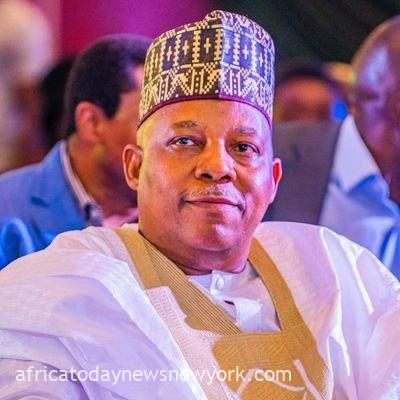The Nigerian government announced on Thursday its dissatisfaction with the annual $5 billion revenue from Natural Gas, citing untapped potential in the sector.
Senator Kassim Shettima, Nigeria’s Vice President, brought attention to the stark contrast in earnings between Nigeria and Egypt, mentioning at the 6th Valuechain Energy Magazine Annual Lecture & Awards in Abuja that Nigeria’s revenue is only 40 percent of Egypt’s, despite Nigeria having approximately 30 percent more gas reserves than Egypt.
Mr. Sodiq Wanka, representing Shettima, the Special Adviser to the President on Energy and Power Infrastructure, Office of the Vice President, highlighted the crucial need for substantial investments in order to unleash the full potential of the gas sector.
He cautioned that the failure to undertake these investments might result in the country’s gas supply gap reaching as much as 10 billion standard cubic feet per day by 2030.
The Vice President noted that ‘the story of Nigeria’s gas riches and potential cannot be complete without understanding that we are far off from that potential and have a lot of work to do, as public sector leaders and as captains of industry.’
Read also: Tinubu To Present ₦26.1tn 2024 Budget To NASS In November
‘Today, Nigeria earns around $5bn from gas production, a figure that is 40% less than in Egypt, which has around 30% of Nigeria’s reserves. Our production to reserve ratio is less than a 3rd of Egypt’s, less than a quarter of Algeria’s and around 10% of Malaysia’s.’
‘In the aftermath of the Russia-Ukraine war, the EU and many other nations were shopping for LNG at the same time that Nigeria’s largest LNG assets were operating significantly below capacity because the gas supply was inadequate’.
While expressing government’s determination to ensure that the necessary gas infrastructures were put in place, he added that ‘one only needs to look at the number of power plants and factories that have built up around the Escravos-Lagos-Pipeline System and its various spurs’, to appreciate the urgency required.
The Publisher/CEO of Valuechain Media Group, Mr. Musa Bashir Usman, highlighted the need for collaboration between industry players and the government to propel the sector’s development.
He explained that the 6th lecture with the theme: Midstream Gas Development: A Pathway to Energy Transition, seeks to highlight ‘the critical importance of developing the midstream gas sector as an integral part of our energy transition journey. ‘
‘To achieve our energy goals as a nation, we must consciously invest in infrastructure that facilitates the smooth transition of gas production from the upstream value chain to the downstream end.’
The Emir of Kano, Alhaji Aminu Ado Bayero, in his comments, applauded the Federal Government, NNPC Limited, and other stakeholders involved in the Ajaokuta-Kaduna-Kano gas pipeline project, pointing out the project’s potential to foster economic linkages along the corridor, which spans diverse communities, states, and cultures.

